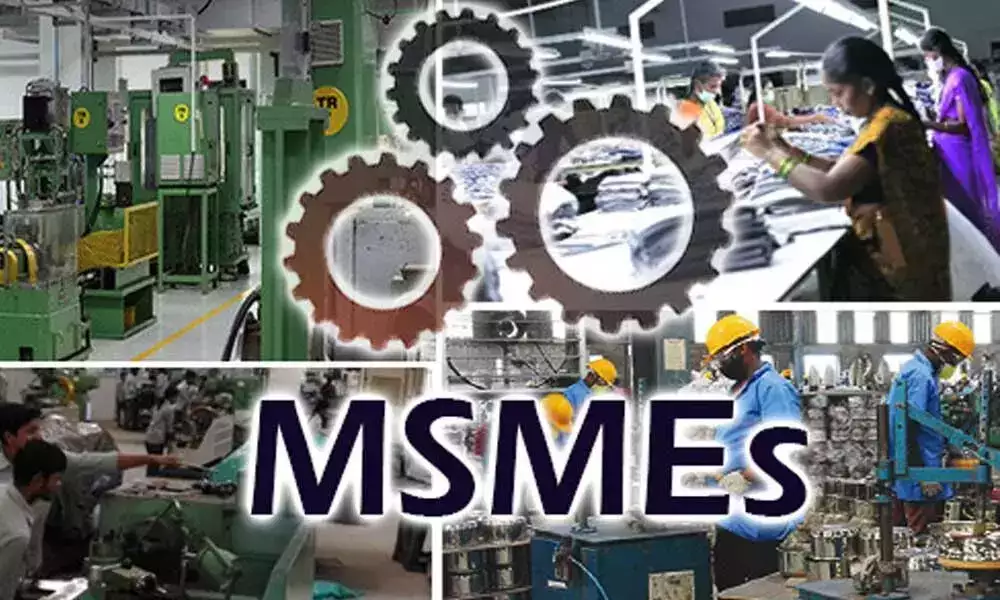Share

The sector has been struggling for financial support and deriving the advantages of facilities offered by financial institutions. As a part of their pre-budget meeting with Reserve Bank of India (RBI) mandarins, MSMES sought the central bank to amend its NPA classification policy. The Union Budget will be presented by the Finance Minister, Nirmala Sitharaman on July 23. Incidentally, been informed of the issues when representatives of MSMEs interacted with her sometime back. The plea is not without any reason and it must be noted that the NPA classification policy, which is in operation since 2013, has proved disastrous for thousands of MSMEs trying to recover from the blow dealt by the Covid-19 pandemic. According to the policy, banks are required to assign accounts with exposure of Rs. five crores (fund plus non-fund) into three categories: SMA (special mention account), (if account showed signs of incipient stress even if principal/ interest not overdue for more than 30 days); SMA-1 (if principal/ interest payment overdue for 31-60 days) and SMA-2(If principal/ interest payment overdue for 61-180 days). A red flag is raised even if principal/ interest payments get delayed by 30 days.
Talking to Bizz Buzz after attending the meeting, Anil Bhardwaj, Secretary General, Federation of Indian Small and Medium Enterprises, says, “A red flag is raised even if principal/ interest payments get delayed by 30 days. Once an account figures in SMA, the account becomes a pariah both inside as well as outside the bank as it brings even the normal banking operations to a grinding halt. This is creating false alarms and even resulting in forced closure.”
SME Chamber of India has also urged the RBI to change NPA definition from 90 days to 180 days for the MSME sector. Moreover, it has requested the арех bank to advise FIs not to refuse proposals or any other banking services for those not having Udhyam Registration Certificate. Besides, it wants the central bank to consider as a special case to provide loans up to Rs. five crores to micro and small enterprises as a priority sector under ‘Differential Rate of Interest Scheme’ in the weaker sections category. In spite of growth engine of the Indian economy, MSME sector has been struggling to avail various financial support and advantages of various facilities of financial institutions.
Mr. Chandrakant Salunkhe, Founder and President- SME Chamber of India, says, “We have observed that micro & tiny enterprises are taking approximately 10 years to become small enterprises, small enterprises are struggling for further 7 to 8 years to convert into medium enterprises and medium enterprises also struggle more than one decade to transform into emerging mid-corporates, only because of lack of financial support, difficulties for accessing various incentives, schemes, benefits, affordable skilled man power, delay in trade receivables, high rate of interest of the finance and approach by Government Departments and banks.” The financial institutions are the only source and the backbone of the MSME sector for availing financial support for growth and expansion, he said. The Chamber has been advocating implementation of measures that incentivize banks and financial institutions to offer lower interest rates on loans specifically tailored for MSMEs. This could involve a targeted scheme offering subsidized interest rates for loans below a certain threshold. Additionally, streamlining loan application procedures and leveraging technology to create a dedicated digital platform connecting lenders and borrowers would significantly reduce administrative burdens for MSMEs. The meeting was attended by two Deputy Governors of RBI, M. Rajeshwar Rao and J. Swaminathan.
Related Posts
SEARCH SMECONNECT-DESK
RECENT POST
- THE COUNTDOWN BEGINS: 2ND EDITION OF PACK.NXT 2024 ANNOUNCED!
- Mr. Goyal launches district master plan under PM Gati Shakti for infra planning
- China emerges as India’s top import source during April-September 2024: Commerce ministry data
- Income Tax Department can send income tax notice on these 5 high value cash transactions
- As Gujarat announces new textile policy today, here’s a look at why Maharashtra’s Navapur is being preferred by Surat factory owners








